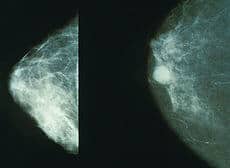vanderbilt university medical center
Strong social ties benefit breast cancer patients
Breast cancer patients who have a strong social support system in the first year after diagnosis are less likely to die or have a recurrence of cancer, according to new research from Vanderbilt-Ingram Cancer Center (VICC) and the Shanghai Institute …
Developing robots for the hospital emergency room
Are you ready for robots in the ER?
A group of computer engineers at Vanderbilt University is convinced that the basic technology is now available to create robot assistants that can perform effectively in the often-chaotic environment of the emer…
Over-reactive immune system kills young adults during pandemic flu
On November 19, Jason Martin returned to the Medical Intensive Care Unit (MICU) at Vanderbilt University Medical Center for the first time since he nearly died there during last year’s H1N1 flu pandemic. The tall and burly Warren County, TN, amb…
New path for colon cancer drug discovery
An old pinworm medicine is a new lead in the search for compounds that block a signaling pathway implicated in colon cancer. The findings, reported by Vanderbilt University Medical Center researchers in the November issue of Nature Chemical Biol…
Researchers identify new cancer drug target
Tumor cells have evolved a crafty scheme for protecting themselves from the killing power of the host immune system; in part, they disable the immune response. New studies implicate a receptor for prostaglandin E2 (PGE2) in this phenomenon of tumor-induced immune suppression. The findings, published in the March 1 Journal of Clinical Investigation, suggest that drugs that block the PGE2 receptor, called EP2, might restore the immune system’s tumor-killing capacity.
Oxygen bars may be harmful to your health
At health spas, mall kiosks, and “oxygen bars” across the country, people are paying to breathe oxygen. For about a dollar a minute, enthusiasts inhale 95 percent oxygen ? air offers a paltry 21 percent O2 ? and report that it relieves a variety of maladies from hangovers to headaches. The practice may be a bad idea, according to scientists studying the damaging effects of free radicals ? highly reactive molecules derived from oxygen.
Radiation helps drugs ‘zero in’ on tumor blood vessels
A team of scientists has shrunk tumors or delayed their growth in animal studies by using radiation to enable a drug to “zero in” and block the tumor blood vessels. The work, reported in the January issue of the journal Cancer Cell, is a model for what might be achieved in patients by using radiation to activate drug targets in tumors. “We can now use combinations of chemotherapy and radiation to improve the anti-cancer effect for many of our patients, but the side effects can be great,” said Dr. Dennis Hallahan, chair of Radiation Oncology at Vanderbilt- Ingram. “With this approach, we hope we can ultimately deliver drugs directly and selectively to the tumor alone, and reduce side effects.”
Radioactive microspheres help knock out liver tumors
 Physicians treating deadly liver tumors are finding success by injecting patients with radioactive microspheres that get trapped in the web of small blood vessels feeding a tumor and zap the cancerous cells. “The liver doesn’t tolerate external beam radiation in sufficient doses to affect tumor without damaging the remaining good liver,” said one physician researcher working on the treatment. “These spheres emit radiation for a short distance, less than a centimeter. If you can cluster radiation right around the tumor, the radiation exposure at the tumor site compared to normal liver is favorable.”
Physicians treating deadly liver tumors are finding success by injecting patients with radioactive microspheres that get trapped in the web of small blood vessels feeding a tumor and zap the cancerous cells. “The liver doesn’t tolerate external beam radiation in sufficient doses to affect tumor without damaging the remaining good liver,” said one physician researcher working on the treatment. “These spheres emit radiation for a short distance, less than a centimeter. If you can cluster radiation right around the tumor, the radiation exposure at the tumor site compared to normal liver is favorable.”

